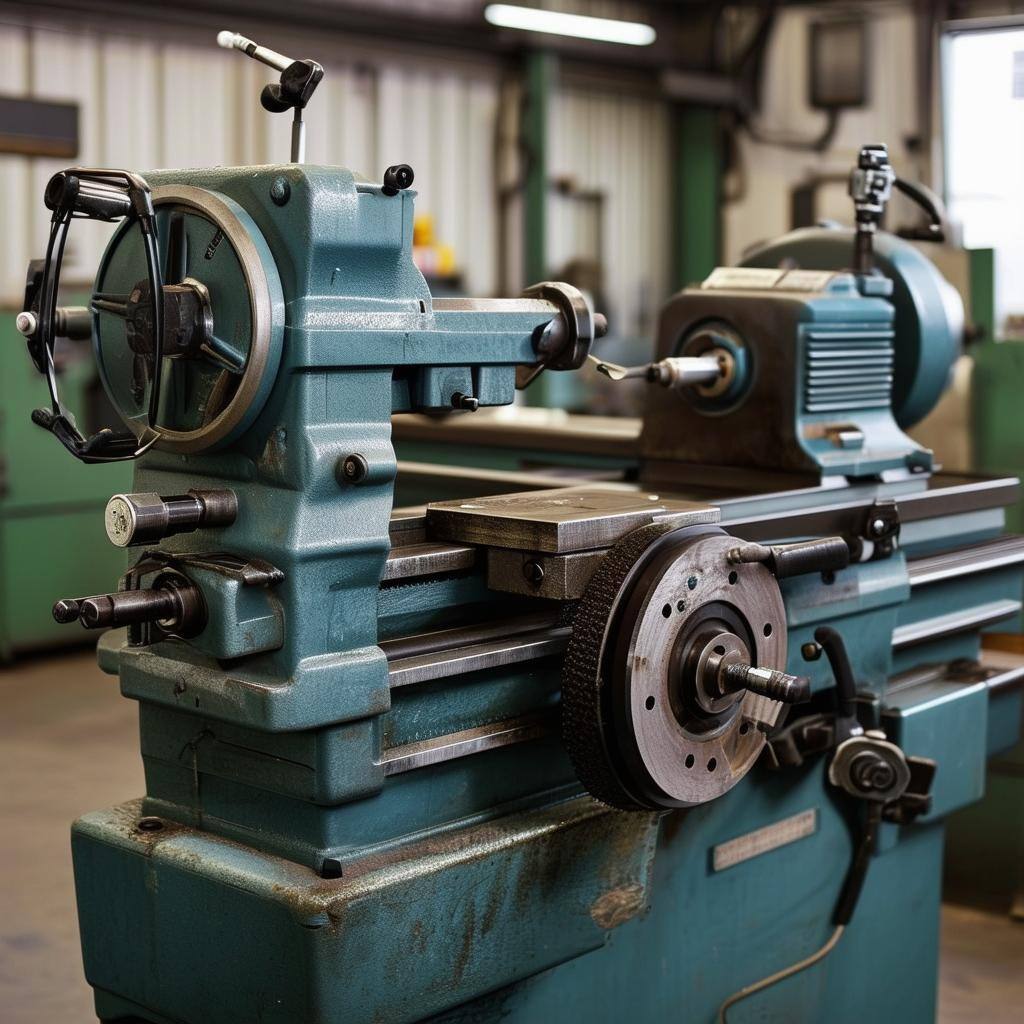What Lenders Look at Besides Credit Score When applying for a business loan, most owners focus on...

Why Consider Brake Lathe Financing or Leasing?
-
Reduce Capital Expenditure:
- Brake lathes can be costly, especially high-precision models. Financing or leasing allows shops to spread the cost over time, making it affordable and preserving cash flow for other needs.
-
Improve Service Capabilities:
- By financing a brake lathe, shops can offer more comprehensive services, reduce turnaround time, and attract customers seeking complete brake repair services.
-
Flexible Payment Options:
- Financing provides fixed monthly payments that simplify budgeting and make cash flow management easier, especially during slower months.
-
Potential Tax Benefits:
- Lease payments may be deductible as operational expenses, while financed equipment can offer depreciation benefits. Consult a tax advisor for specific tax advantages.
-
Access to Latest Technology:
- Leasing provides flexibility for upgrades, ensuring access to the latest equipment and keeping the business competitive.
Types of Brake Lathes Eligible for Financing & Leasing
-
On-Car Brake Lathes:
- These lathes mount directly on the vehicle, allowing the technician to machine the brake rotors without removing them. Financing these units enables shops to offer quick and precise service.
-
Bench (Off-Car) Brake Lathes:
- Bench brake lathes machine rotors and drums separately, offering versatility for shops servicing a wide range of vehicles. Leasing allows small shops to add this essential equipment without a large capital commitment.
-
Combination Brake Lathes:
- These models work on both drums and rotors, making them ideal for high-volume shops. Financing or leasing reduces the initial cost and allows for flexible payment options.
-
Heavy-Duty Brake Lathes:
- Designed for trucks, buses, and larger vehicles, heavy-duty lathes are essential for shops specializing in fleet or commercial vehicle maintenance. Financing makes these high-cost machines more accessible.
-
Portable Brake Lathes:
- Lightweight and compact, portable lathes are ideal for mobile service providers or shops with limited space. Leasing these units can expand service options without a major investment.
Types of Financing & Leasing Options for Brake Lathes
-
Equipment Loans:
- An equipment loan provides ownership of the brake lathe while breaking down the cost over time. Monthly payments include principal and interest, making this option suitable for long-term investment.
-
Operating Lease:
- An operating lease is ideal for short-term use, with options to upgrade, return, or renew at the end of the term. This is a good option for shops that prefer flexibility.
-
Capital Lease (Lease-to-Own):
- With a capital lease, payments are higher but allow the shop to own the brake lathe at the end of the term. This is a viable option for shops looking to make a long-term investment.
-
Vendor Financing:
- Some brake lathe manufacturers offer in-house financing, which can simplify the purchasing process and may offer lower rates or more favorable terms.
-
Deferred Payment Plans:
- Deferred payment plans delay the start of payments, allowing shops to begin using the equipment and generating revenue before making payments.
-
Sale-Leaseback:
- For shops that already own a brake lathe, a sale-leaseback arrangement allows them to sell the equipment to a financing company and lease it back. This provides quick access to cash without losing access to essential equipment.
Benefits of Brake Lathe Financing & Leasing
-
Preserve Cash Flow:
- Financing allows for monthly payments, freeing up working capital for other operational needs, emergencies, or expansion.
-
Access to Updated Equipment:
- Leasing offers flexibility for upgrades, enabling shops to access advanced technology as it becomes available and remain competitive.
-
Predictable Monthly Payments:
- Fixed monthly payments make budgeting simpler and cash flow more predictable, especially for small businesses.
-
Tax Advantages:
- Lease payments may be deductible as operational expenses, and financed equipment may offer depreciation benefits. Consulting a tax advisor can provide clarity on these benefits.
-
Expand Service Offerings:
- With financing, shops can afford specialized brake lathes, allowing them to service a broader range of vehicles, from compact cars to heavy-duty trucks.
Who Can Benefit from Brake Lathe Financing & Leasing?
-
Auto Repair Shops:
- General repair shops benefit from brake lathes to offer complete brake services, ensuring customer satisfaction and boosting revenue.
-
Brake and Tire Centers:
- Specialty centers that focus on brakes and tires rely on brake lathes for precision work. Financing options allow these shops to offer comprehensive services.
-
Heavy-Duty and Fleet Service Providers:
- Shops specializing in heavy-duty vehicles and fleet maintenance can use financing to acquire heavy-duty brake lathes needed for servicing trucks, buses, and other large vehicles.
-
Mobile Mechanics:
- Mobile mechanics can benefit from financing portable brake lathes, allowing them to expand services without a large initial investment.
-
Dealership Service Departments:
- Dealerships can finance high-quality brake lathes to enhance their service offerings, retain customers, and improve service efficiency.
How to Qualify for Brake Lathe Financing & Leasing
-
Credit Score:
- Both personal and business credit scores are important factors, with higher scores leading to better rates.
-
Financial Documentation:
- Financial statements, tax returns, and business revenue documentation are typically required for financing.
-
Down Payment:
- Some lenders may require a down payment, but certain lease options may have no upfront cost.
-
Industry Experience:
- Established businesses with a track record in auto service are often viewed as lower risk.
-
Collateral:
- The brake lathe itself usually serves as collateral, reducing the lender’s risk and making financing more accessible.
Steps to Secure Brake Lathe Financing or Leasing
-
Assess Equipment Needs:
- Determine which type of brake lathe will best suit the shop’s needs, based on the types of vehicles serviced and customer demand.
-
Explore Financing Options:
- Compare financing options from banks, leasing companies, and vendor financing programs, focusing on interest rates, payment flexibility, and term length.
-
Gather Financial Documentation:
- Prepare necessary financial documents, such as financial statements and tax returns, to streamline the application process.
-
Submit Application:
- Complete an application with the chosen lender, providing all required documents for a quicker approval process.
-
Review Terms:
- Carefully review the terms, including interest rates, monthly payments, and any end-of-term options, to select the best option for your business.
-
Acquire Equipment:
- Upon approval, arrange delivery and installation of the brake lathe to begin offering services promptly.
Conclusion
Brake lathe financing and leasing options enable automotive service shops to afford critical equipment without a large initial outlay, helping to increase service capabilities and improve cash flow management. Financing options, including operating and capital leases, vendor financing, and deferred payment plans, offer flexibility and predictability to businesses seeking brake lathes. By making high-quality brake lathe equipment accessible, financing supports business growth, enhances service offerings, and helps shops remain competitive in a demanding market.



